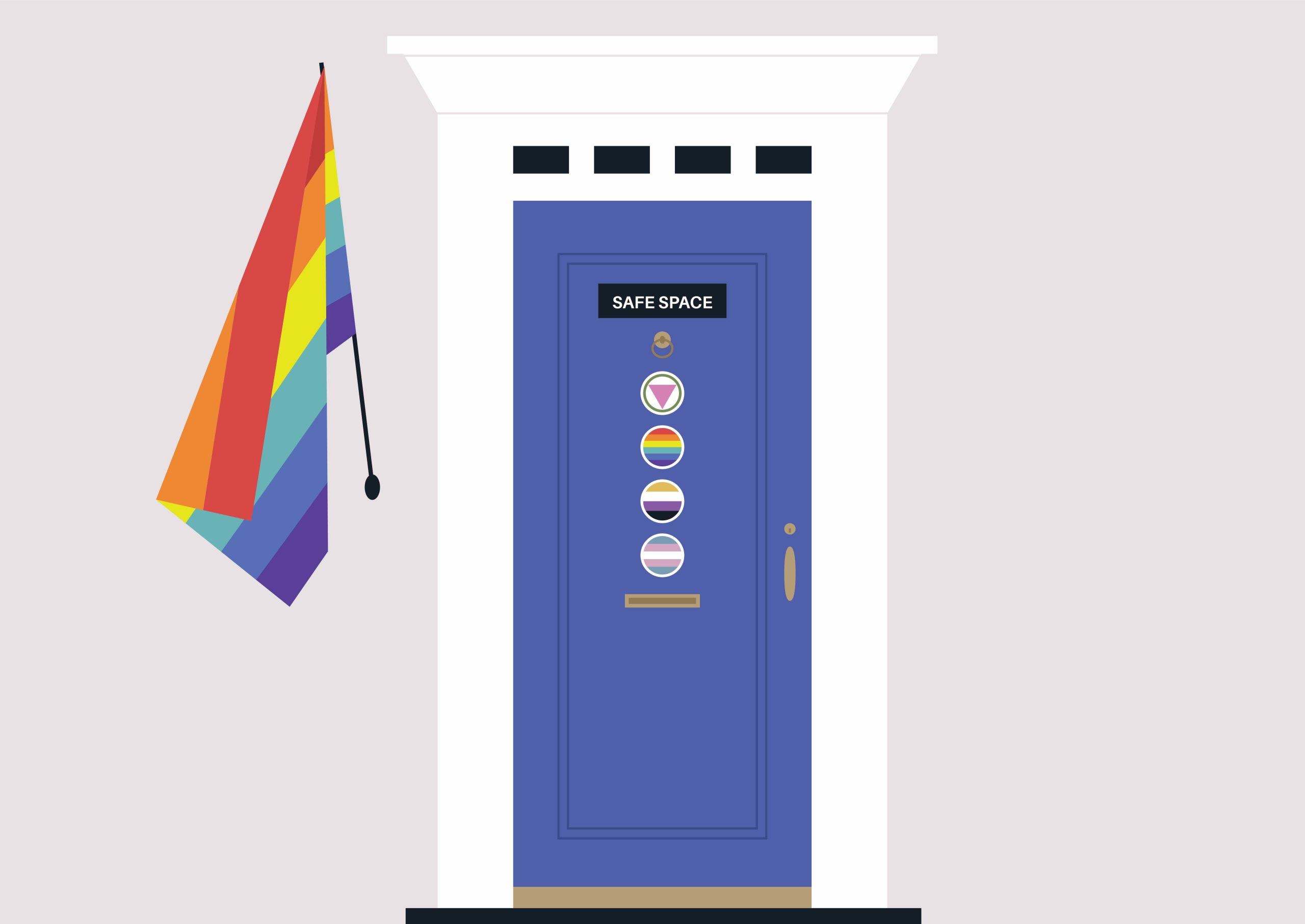LGBTIQ+ SUPPORT TIPS

GETTING THE SAFE SUPPORT WE NEED
For us LGBTIQ folks, when it comes to seeking help for alcohol and drug issues, finding a service that genuinly understands ourt experiences and respects our identity can be difficult. We’ve got questions. Let’s dive in and discover some tips that can help us find safe spaces for support.
FINDING SAFE SUPPORTS

A lot of alcohol and drug services in Australia are provided by mainstream service providers – meaning they aren’t led or informed by us queer folk. While there are some LGBTIQ specialist services – like those offered by Thorne Harbour Health – most of the time, we will access support through someone who may not truly understand the ways that our unique experiences can impact our alcohol and drug use, or how alcohol and drugs impact our identity.
Services that break down the barriers for us queer folk, so that we can access better health and wellbeing services, embrace an inclusive approach that is open, non-judgmental, responsive to our unique needs and validates our experiences. It’s important to be assured that we will be comfortable, safe and affirmed by the service – it’s essential to getting us on the right track.
So, here’s the plan: do some digging before you dive in. Scope out whether the service is the right match for you. It’s like dating but for support!
ORGANISATIONAL RECON

So, how do we go about this? Let’s break it down:
Dive into Their Online World
Start by checking out the service’s website. Look for clues that they’re queer-friendly:
- Do they mention us? Does the site acknowledge LGBTIQ people and issues?
- Rainbow Tick? If they proudly display the Rainbow Tick, that’s a big thumbs up for queer inclusivity!
- Walk the talk: Look for policies or statements that show they’re clued in to LGBTIQ needs.
- How do they view substance use? Do they demonise it, or do they understand it’s something that impacts many of us?
Unleash the Power of Google
Do a little detective work with a Google (or alternative search engine as I’m not going to play favourites) search:
- Media buzz: Any negative stories involving queer topics? Have they made the press for the wrong reasons?
- Community scoop: Have other queer people used their services? Are there any comments or reviews that’ll give you some insight?
Remember, this isn’t an exhaustive checklist, but it’s a solid start to figure out if a place is right for you.
CHECK THE SERVICE

Once you’ve got a contender, it’s time to get specific:
- Service favours: Do they offer different approaches, from quitting altogether to just reducing harms?
- Do they get us? Have they worked with LGBTIQ folks before? Have they done training and learned about our unique health needs?
- Fam vibes: Do they understand that our “chosen family” is just as real as blood family? Does the service expect us to include our blood family – especially if we’re not on the best of terms?
- Group hangouts: Will they make us spill the tea about our gender and sexuality in front of everyone? Is group sharing expected?
- The whole package: Can they help with other things we’re dealing with, like mental health, family violence or housing issues?
DIVING INTO THE FIRST APPOINTMENT

If you’ve decided to move forward with a particular service or practitioner (and good for you getting to this point), you may still have some unanswered questions. These can usually be asked before the first appointment or during the intake and assessment process (although not all places follow this process).
What is intake?
Intake is generally our first interaction with a service and establishes the nature of the experience we will have with the service. Inclusive intake and assessment not only allows for the collection of information but also recognises the different experiences and risks – physical, emotional and psychological – of individuals with a variety of experiences. A thorough intake assessment should be done in a way that invites us to share and disclose information safely, that is relevant to our care and support needs.
It’s natural to feel a bit uneasy about a service, so we’ve drafted some questions you can ask to make you feel more at ease.
- Does intake record information about our sex, sexuality and gender?
- If not – Why not?
- If yes – Can we decide not to answer, or whether to answer later?
- Where does this information get recorded and how is it protected? Who can see that information?
- What are the benefits of disclosing our personal information? How and when is this communicated throughout the intake process?
- Does the service ask specific questions relevant to our communities? (e.g., are we getting a sense that the service understands and is aware of the unique barriers, discrimination and trauma we may have experienced?)
- How do they provide services differently to support people of sex, sexuality, and gender minorities?
- Do they actively engage in practices that affirm LGBTIQ+ folks?
- If we’re in a group environment, how does the service keep LGBTIQ+ service users safe from discrimination and other challenging/stigmatising experiences?
- Is it possible to see a different practitioner if the one we get lacks the understanding and awareness of issues that are important to us?
- What happens if we have a complaint about discrimination or unsafe practices?
Remember, it’s your journey. Ask all the questions that make you feel safe and understood. Don’t settle for anything less than support that truly embraces you. Seeking help should feel empowering, not daunting. Here’s to finding the right place to support your unique journey to well-being!
DISCLAIMER:
The information given on this page is not medical advice and should not be relied upon in that way.